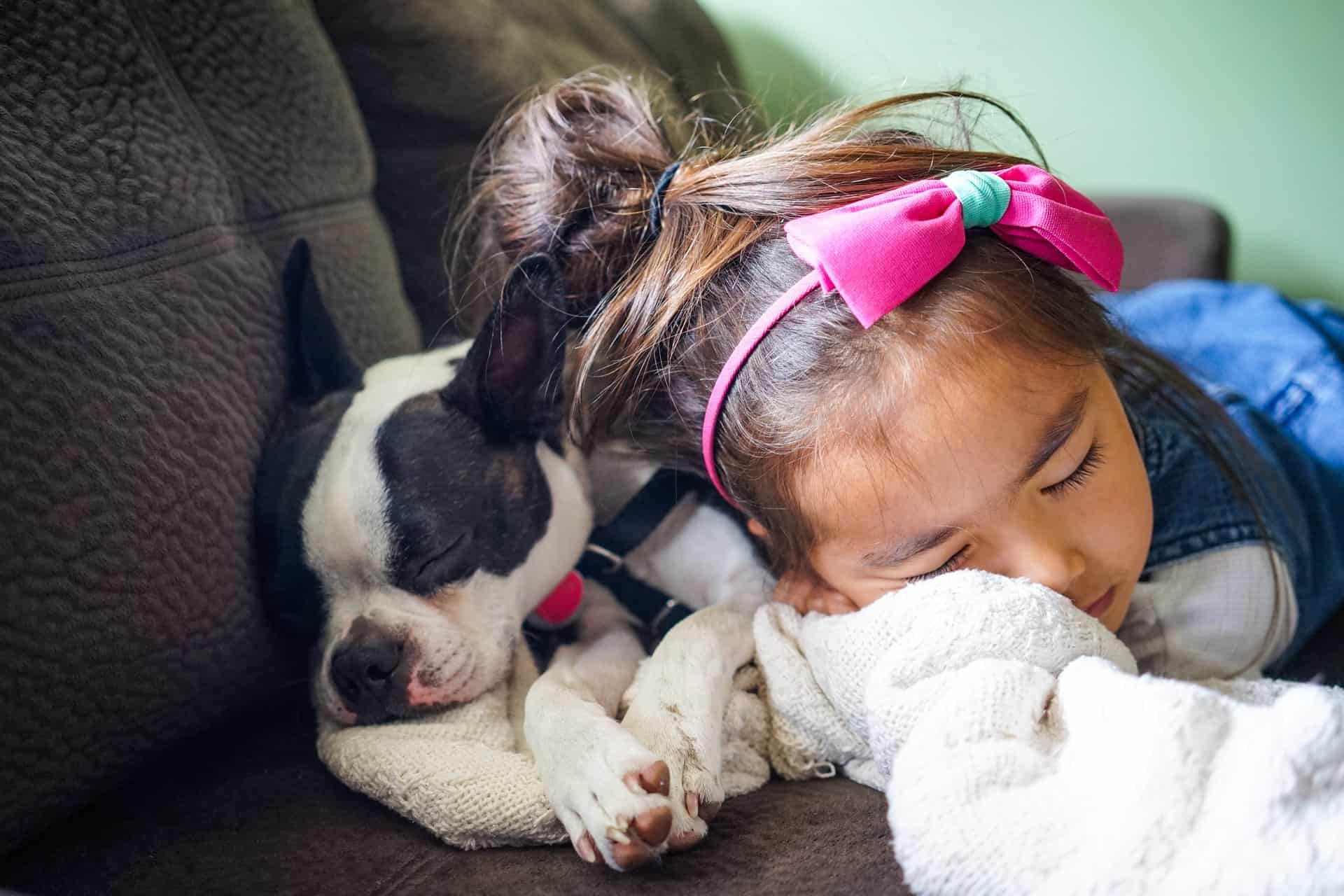Considering getting a family pet? There’s nothing like giving a child a furry best friend.
At St Peter’s, we understand the importance of pets to a child’s personal development. We offer trips to farms as one of our field trips because of how they encourage the natural relationship we have with animals.
Owning a pet can be so enriching for family life. However, while children may love the idea of a pet they don’t always think about the realities. Let’s consider the pros and cons here.
Learning Responsibility
Owning a pet is an incredible opportunity for a child’s development; providing a way to introduce a sense of responsibility, independence, and empathy.
Not only does it teach them to care for a dependent being, but it also teaches them to take care of themselves more too, especially with a pet like a dog that requires daily walks.
It is perfectly natural for children to be focused on their own wants and needs, so adding a pet for them to take care of can be a great tool in teaching them to think beyond themselves.
Making it clear to your child that animals are not just toys but living beings that they must actively care for makes it easier for the whole family to provide that care.
Gradually Introduce Responsibilities
However, the last thing you want is to make them feel overwhelmed, as this can have the unintended consequence of building resentment towards the pet. It is important to take it step-by-step and keep in mind that the depth and extent of responsibilities can grow with your child.
Giving them challenges to overcome is great, but make sure you can give plenty of supervision and reassurance during these tasks until they are old enough to do them independently.
Be careful not to give your children too many responsibilities, especially if they are infrequent and/or difficult. Take the time to explain why certain tasks are important for the animal’s well-being and recognise when your child feels something is beyond their capabilities.
It’s better to nip that in the bud so that the pet remains a source of happiness instead of frustration.
Keep Tasks Simple
Simple, daily, easy-to-learn tasks such as feeding, cleaning a space (e.g. a rabbit hutch), handling animals, or taking dogs for walks provide clear and concise goals for children to strive towards.
Encouraging that sense of achievement, as well as providing routine and structure, is key for creating a framework that enables them to approach other tasks (such as homework and chores) with self-confidence and minimal stress.
Granting them such responsibility will be instrumental in developing their maturity as they will have to realise that even if they are in a bad mood or feel tired, they still have to care for their pet.
A good indicator of whether your child is truly ready for a pet is if they show a willingness to engage with the research and preparation involved in welcoming a new addition to the family.
Still, missing feedings or forgetting to clean up after the pet should not be punished; encouragement and patience is key to giving them the confidence they need. As long as you set an example of how to be a good pet owner, your child will start to pick up on what they need to do.
Owning a Pet Takes Up Time
Owning a pet can take up a lot of your time. If you already lead a busy lifestyle, adding a pet that needs substantial attention and care can disrupt the social dynamics of the household.
Some animals — like cats — are fairly independent, and even dogs with needier temperaments can be trained to adapt to the owner’s needs.
However, training, exercising, grooming, and feeding can take up more of your time than you might expect. In a sense, it’s like taking on another child. Remember, most cats and dogs can live up to 18 years, so this isn’t a short-term commitment.
Research the Type or Breed of Pet
Working around this will involve researching the types of pets you’re interested in owning before anything else. That way, you can figure out the individual needs of your desired animal and how they could adapt to your family.
Some animals require less socialisation (such as snakes) whereas others need a lot of maintenance. But even if you’re interested in owning a family dog, their needs can vary dramatically depending on the breed.
Consider the Age of Your Pet
Furthermore, age and background can play a big factor. While kittens and puppies are cute critters, they require much more care at such a critical and vulnerable stage of their lives.
You will need to prepare for some mess. Cleaning their waste and training them to use a litter box or go in the garden can be a tricky task. Not to mention grooming, especially if you have a breed that sheds a lot.
You may think that older pets are an easy way to skip some growing pains, but they can also be more set in their ways and have more difficult learned behaviours, especially if they’re rescue animals.
It can be deeply upsetting to both the pet and children if it turns out to be unmanageable to keep, so it is necessary to put in a lot of forethought before taking on board another family member.
Will it Impact Your Holidays?
School holidays can become complicated with a pet too. You will have to provide care for them if they’re staying home, or you will have to change your holiday destination to somewhere that allows pets.
While it’s good to listen to what type of pet your child wants, take a trip to your local bookstore or look online for resources first. Research can provide more information on whether this is a viable option or if there are similar pets/breeds that are easier to handle.

Owning a Pet Can Be Expensive
With all the excitement of purchasing a friendly companion for the family, one of the most significant factors can be easily underestimated: the expense. Although pets are life-changing in many positive ways, the initial outlay can be in the hundreds or even thousands.
Pets are a long-term investment so you must also think past the initial purchase: collars, beds, a crate, food, brushes, toys, litter boxes, door flaps, and grooming can all require a significant amount of cash. Not only is food the most important thing on the list, but it will also be the largest drain on your budget.
Then there is pet-proofing your home either with bins to safely dispose of toxic waste or fences and gates to keep the animal and your belongings safe.
That being said, there’s no guarantee that pet-proofing will protect items from being scratched up and chewed. It all adds up, and on top of that, visits to the vet can be costly.
The species and breed will impact the individual care needs of your pet. More generally, they may require insurance, microchipping, being spayed, and undergoing regular vaccinations and checkups.
Still, there are ways to effectively budget; look for money off at retailers such as Pets at Home, who offer deals for bulk buying food. These are aspects of pet care that a child is not likely to fully understand or appreciate, so be careful when planning such a large change.
Love and Friendship From Your Pet
First-time pet owners can feel easily overloaded with all the difficulties that come with such an important decision. Ultimately, the reason that pets are a part of so many families is that the experience is priceless.
Pets have been proven to have an immensely positive effect on both the physical and mental health of children. Pets can nurture their self-confidence, social skills, and empathy, ultimately helping children to navigate school life even at younger ages.
The best part is that your care is repaid tenfold with unconditional love. There isn’t a better feeling than coming home to fuzzy creatures who are excited to greet their owners. You can expect plenty of play and snuggles that can make even a hard day end on a positive note.
This can provide kids with a great icebreaker that makes creating long-lasting friendships in school just that much easier.
Adorable pets allow children a chance to bond over the animal, and even with pets that have a cooler and seemingly aloof attitude, friends will be interested in how unique they are. Any potential difficulties are lessons for the future and definitely worth such an irreplaceable, life-changing experience.
St Peter’s Prep values the chance for children to gain rewarding experiences not just within the classroom but outside it too. We hope that this guide can help your family to decide whether you will gain another member.
For more information about the educational prospects at our private school in Devon, please call Rachel Jupp, Director of Admissions & Marketing, on 01395 280335 or email rachel.jupp@stpetersprepschool.co.uk.








